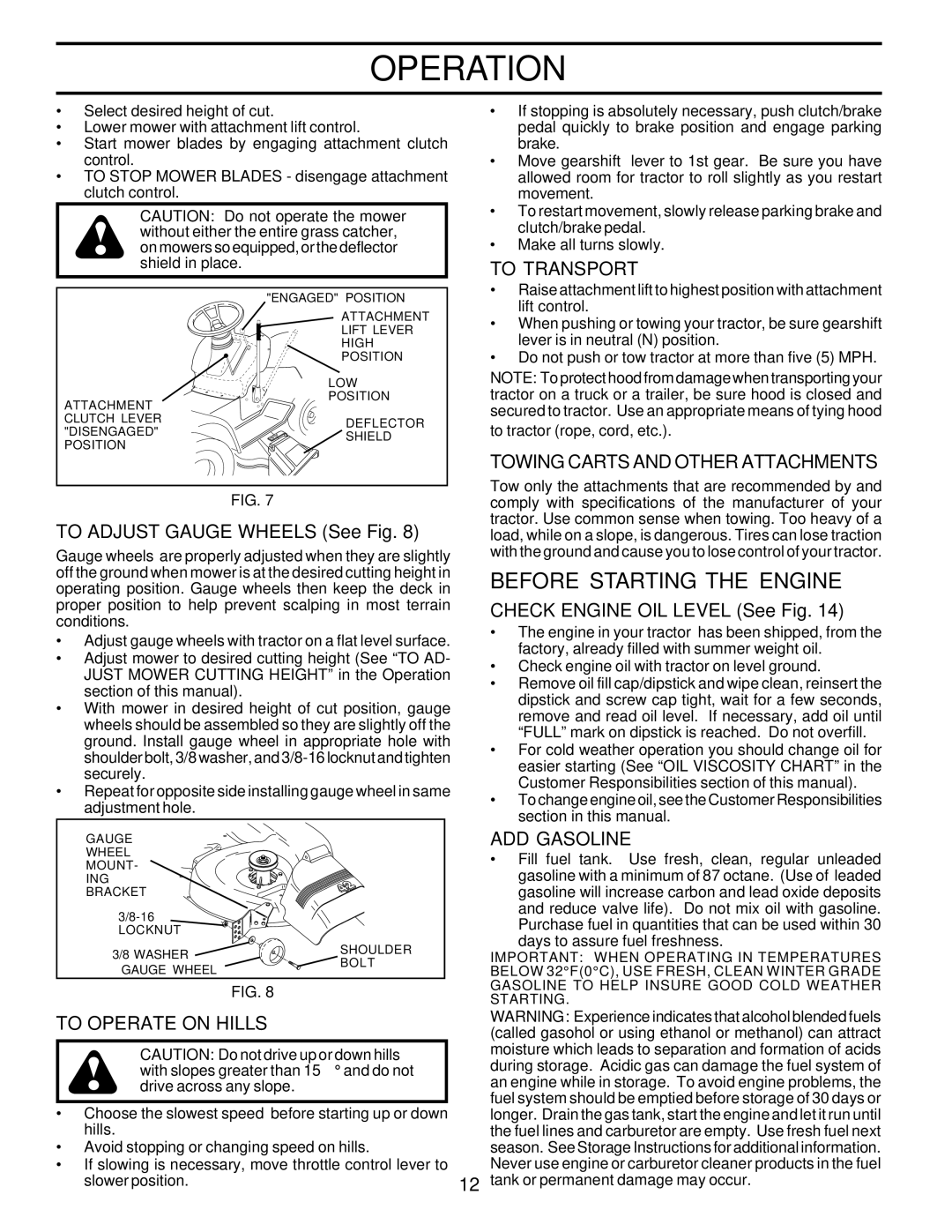177545 specifications
The Poulan 177545 is a powerful and versatile chainsaw designed for both professional and residential use, catering to a wide range of cutting needs. This model stands out due to its robust construction and innovative features, making it an ideal choice for anyone seeking efficient and reliable performance.One of the key features of the Poulan 177545 is its powerful engine. Equipped with a high-performance 46cc two-cycle engine, this chainsaw provides ample power for tackling tough cutting jobs, whether they involve felling trees, pruning branches, or cutting firewood. The engine is designed for easy starting, thanks to the built-in primer bulb and advanced start system, minimizing downtime and allowing users to get to work quickly.
The 18-inch bar length of the Poulan 177545 is another significant characteristic, providing users with a perfect balance between reach and control. This makes it suitable for both larger and smaller cutting tasks, offering versatility for different applications. The chainsaw also features a low-kickback chain design, which enhances safety and minimizes the risk of injury during operation.
Another notable technology incorporated into the Poulan 177545 is its automatic oiling system. This feature ensures that the chain remains properly lubricated during use, reducing friction and wear, which prolongs the lifespan of the chain and bar. Additionally, the chainsaw's tool-free chain tensioning system makes adjustments quick and easy, allowing users to maintain peak performance with minimal effort.
The design of the Poulan 177545 puts user comfort and safety at the forefront. It features a comfortable grip handle that reduces vibrations, making extended use more manageable. The safety chain brake adds another layer of protection, allowing for quick and responsive action in case of kickback.
Lastly, the Poulan 177545 is engineered with an emphasis on durability and ease of maintenance. The durable construction ensures that the chainsaw can withstand regular use in various environments. With its user-friendly design and maintenance features, the Poulan 177545 is a reliable tool for both seasoned professionals and DIY enthusiasts alike. In summary, the Poulan 177545 offers a combination of power, safety, and ease of use, making it an exceptional choice for anyone in need of a dependable chainsaw.

